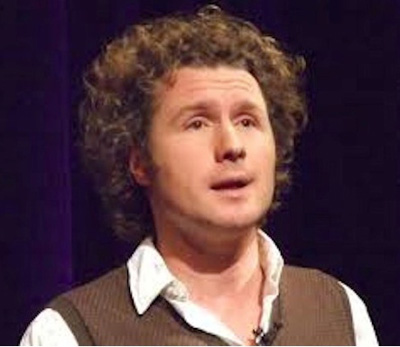Compared with all those early-adopters out there, we are comparative latecomers to the 140-character-restricted tweeting world of Twitter, having for 10 years used our website as the commercial-free, ‘shop window’ for our campaign activities. Given that our stories and features can be a little lengthy (we've been trying to shorten our material, honest!), some of you will hopefully see our increasing use of social networking as a good thing. So if you want regular, daily soundbites from ANH International, sign up to our @anhcampaign twitter address. We promise to give you juicy and relevant tidbits that relate to #naturalhealth (woops! It's addictive once you get going), our campaign activities and our calls to action.
After publishing what we thought was straightforward, relatively uncontroversial piece on detox last week, we found the moderation queue for the article on our website almost immediately lined up with a series of extremely negative comments. We'd simply countered some strong anti-detox publicity centred around comments by Emeritus Professor Bender who called detox "pointless" and "medically futile" and the British Liver Trust who said don't both detoxing in January. Actually, the general thrust of what the British Liver Trust indicated was entirely sensible: reduce your alcohol intake throughout the year, rather than having a month off and then drinking like a fish for the rest of the year.
It quickly became clear to us that these negative comments arose from the UK skeptic community, which has been one of the most hostile critics of natural health. While homeopathy has been their preferred target, pretty much any aspect of natural health seems to be fair game.

The skeptics’ view
Studying the effects of medicine rarely leads to clear-cut results proving beyond doubt that a specific treatment benefits the vast majority of those treated. The current standings for around 3,000 medical treatments so far evaluated by the BMJ’s Clinical Evidence journal stands at just 11% proven beneficial. One particular characteristic of skeptics is that they refuse to accept anything if they don’t understand the mechanism. They are automatically hostile to anything that appears to them to be a logical fallacy, a misconception resulting from incorrect reasoning. Their favourite logical fallacy is homeopathy; skeptics believe that the premise on which it's based is false, therefore it can’t work. They are not particularly interested in seeing outcomes then, always arguing that where there are positive outcomes, these are explained by placebo only. If you then show them trials showing effects beyond placebo, the response is predictable: the studies are flawed. That’s why skeptics take so little note of observational evidence, the single most powerful form of evidence that has driven scientific development over many years, and continues to do so today.
Okay, so it’s a tricky proposition for skeptics to understand how energetic imprinting in water can yield a therapeutic effect, over and above placebo. Homeopaths, and homeopathic researchers say they know it works a lot of the time based on observation, as well as some clinical trials. They offer various possible explanations for the mechanism, say they’ll carry on researching it, and in time they hope to have convinced not only themselves of a given mechanism or the role of multiple mechanisms, but also the scientific community more generally. Skeptics will of course say: fat chance!
Moving on, when it comes to detoxification, mechanisms are somewhat more established. In fact they have been extremely well elucidated. There have been decades of research on detoxification, in more recent times largely funded by pharmaceutical companies interested in the fate of their latest, patented creations. Knowing these mechanisms, and even understanding the way dietary and herbal ingredients can affect or modulate detoxification systems, doesn’t of course say anything about whether detox products themselves work or not.
Detox - logical fallacy or demonstrated science?
Early January saw the the newspapers and media saturated with anti-detox advice. In the UK, most of this seemed to originate principally from two sources, one being Emeritus Professor Bender, the other the British Liver Trust. So we wrote what we thought was a fairly harmless story rebutting some of the points that were made, such as that detox is 'medically futile’.
One of the most well-known skeptics is Dr Ben Goldacre, whose Twitter bio tells us he’s “Nerd cheerleader, Bad Science person, stats geek, research fellow in epidemiology, procrastinator”. He’s also been the Bad Science columnist for the UK’s Guardian newspaper for 8 years, although we note he has not issued a column since last November. One wonders if lots of people have written in to the Guardian’s editors complaining of his style and approach?
Goldacre’s renowned for his attacks on nutrition, homeopathy and almost any strand of non-conventional medicine, which skeptics cynically refer to as ‘faith-based medicine’. Musician and comedian Tim Minchin’s perspective on alternative medicine, as recounted in his song “The Storm”, epitomises the skeptics’ position:
Do you know what they call "alternative medicine" that's been proved to work? "Medicine."
Ummm. Shall we forget all about how big corporations control research findings, government policy and the media? Perhaps it’s all in our imagination...
Taking Ben’s advice
Being an ex-Imperial College postgraduate and research fellow, our founder and executive and scientific director, Dr Robert Verkerk, took a special interest in an interview that Ben Goldacre gave to I,Science, Imperial College’s science rag. Anyone with the patience can read the whole transcript of the interview, including a rather vicious ad hominem on Imperial College’s own Prof Robert Winston, whom Goldacre described as “a man who I regard as laughable”. Goldacre went on to attack the professor for his decision to endorse a commercial brand of fish oils.

Bad Science's Ben Goldacre
In sifting through Goldacre’s somewhat loutish communication to I,Science, there was one part that really caught Rob Verkerk's attention.
Here it is:
“But the other thing that’s really great about things like Twitter and blog comments is, if you read them you can familiarise yourself with the arguments of people you disagree with very rapidly and that’s really important and interesting too, cause it really helps you to hone down your own argument. Obviously a lot of blog comments are very, very unpleasant people shouting about how you’re a bit like Hitler or whatever but for the stuff that’s sensible, where people sensibly engage, it’s a really great window into understanding other people’s perspectives. It goes without saying that your own mind is changed very commonly online, by other people’s arguments.”
Entering the lion’s den
Anyone who wants to sign up to Twitter @anhcampaign, @VerkerkRob or @bengoldacre can find the history of the conversation between Dr Ben Goldacre, some of his followers, and Dr Rob Verkerk. In essence, disappointingly little was achieved. The communications did, however, provide more evidence that the skeptics don’t appear to have an interest in engaging with meaningful scientific issues, at least when it comes to enhanced detoxification using natural health products.
Not one — and certainly not Goldacre himself — has engaged properly, despite a detailed explanation we provided to several of the skeptics' questions about our initial article in a separate feature. In the article, we were very clear about not supporting any detox products per se. We thought it best to start with baby steps. The issue was simply: is it possible to enhance the body's natural detoxification using natural products over and above that which would be achieved through an average diet.
Some skeptics in their responses have been facetious (or very ignorant of scientific matters), one even asking Dr Verkerk to name a detoxification enzyme as if they were imaginary! Rob named five and it was only the character limit on Twitter that stopped him naming more, such is the length of many of their names.
A pearl?
From all the rhetoric and wind, there was one tweet that stood out to us. It’s as follows:
(From Ben Goldacre to Rob Verkerk) on t'science, you're like any other drug reps: mostly claims overextrapolating from theoretical metabolic mechansms
It’s not great, of course, to have Rob Verkerk likened to a drug rep when he’s spent as long as he has warning against over-use of pharmaceutical drugs in healthcare. But at least there appeared to be a crack.
This led to the following conversation:
(From Ben Goldacre to Rob Verkerk) on t'science, you're like any other drug reps: mostly claims overextrapolating from theoretical metabolic mechansms
(From Rob Verkerk to Ben Goldacre) Don't get it. There's a whole bunch of clinicians doing this stuff everyday and getting great results
(From Ben Goldacre to Rob Verkerk) that's another great drug rep line. we train medical students how to spot this stuff from pharma, from anyone.
(From Ben Goldacre to Rob Verkerk) then I wonder what conspiracy smear you will invent next, Robert. Exciting times for your imagination!
(From Rob Verkerk to Ben Goldacre) Ben, I can't think of one that I have invented - do let me know which you had in mind

ANH's Rob Verkerk
And nothing more of any value emerged. What it did show is that Goldacre loves throwing around abuse; and while he didn't go as far as with Telegraph journalist and climate change opponent James Delingpole, it's a far cry from a scientific discussion. The rather hopeful words given by Goldy in his I,Science interview seemed hollower than ever.
Wrapping up
Wasted effort? Probably not. We've understood a little more about just how deeply entrenched Goldacre and those of his ilk are in their views, and also their seeming lack of interest in engaging in meaningful scientific exchanges, at least where they pertain to matters of natural health (and specifically detoxification).
Thank goodness others see it differently.
We asked Rob Verkerk how he felt about having walked into Goldacre’s den. He told us: “I felt I needed a good shower after each interaction. No synthetic shower gels of course. I also remember that Goldacre, when accusing me of smears and the like, asked me to look in the mirror. When I got home, late at night, I did just that. What I saw was a seemingly healthy, 51-year-old man who appears to have benefited from over 30 years of natural health. I also felt hugely relieved to not be surrounded by the seeming darkness that appears to engulf the skeptics.”
Follow us on Twitter
Go to ANH International Facebook page
Back to ANH Homepage








Comments
your voice counts
13 January 2012 at 9:50 pm
Just like the fluoridation issue that most of Europe has settled by taking it out of its water but the U.S. is still debating, those who refuse to debate meaningfully do this because they haven't an intelligent arguement. Fluoridation supporters haven't anything scientific to support their side, and now apparently neither do the anti-detox forces represented by Dr. Verkerk's opponents.
14 January 2012 at 12:19 am
Hi Robert.
I’ve taken 6 months off the column to finish my book on bad behaviour by Big Pharma, as explained in my most recent Guardian piece.
http://www.badscience.net/books/the-drug-pushers/
You’ve misrepresented our discussion, which was about your dishonest smears, and specifically, your bizarre conspiracy theory that I am a pawn of the pharmaceutical industry: this a laughably false allegation which you know to be untrue. I was also explaining that this dishonest smear betrayed a lack of integrity on your part.
In all seriousness, I don’t usually bother, but I was interested in what your reaction would be. Any serious thoughtful person, in your position, reflecting on the fact that they had engaged in such an obviously false and dishonest smear, might feel some shame. You, it seems, do not. So be it.
I also thought to raise the issue because you are the chief executive of an industry lobby group, and so expect to be taken seriously. I think this kind of obviously dishonest and unfounded personal smear reflects badly on a professional industry organisation. You, your members, and your board will have their own view - perhaps it plays very well internally – but I seriously doubt it helps your credibility from the outside.
I will continue to criticise the claims of big pharma and alternative therapists alike (and politicians, and journalists), because all these industries use the same tricks to distort evidence about their interventions, and it’s ok for the public to know about these tricks. They’re also very interesting, as opportunities to explain how science works. I don’t know why you’re so preoccupied with me personally over the detox issue, though: I think I last wrote on it about 4 years ago.
Professor Lord Winston’s adverts were found by the ASA to be untruthful and inaccurate.
http://www.asa.org.uk/ASA-action/Adjudications/2006/6/Dairy-Crest-Ltd/CS_41426.aspx
14 January 2012 at 12:22 am
Oh, one thing. If any of your readers really are interested in positive action to stop the pharmaceutical industry witholding unflattering data on medicines – and not simply using outrage at big pharma as a rhetorical device to sell their own pills and services – then a campaign is starting shortly, with details to come on badscience.net. For anyone unaware of the extent or nature of this problem, it’s explained in some detail in various previous articles here:
http://www.badscience.net/category/big-pharma/
and here
http://www.bmj.com/content/339/bmj.b4949.full
14 January 2012 at 4:24 am
Do you know what they call "alternative medicine" that's been proved to work? "Medicine."
No, as I've said before, if it can't be patented for profit, it's called "banned".
14 January 2012 at 12:28 pm
I am surprised that no-one has picked up on the sheer cruelty of some of the skeptics. If you accept their argument (I don't) that all health improvements from natural medicine are placebo, then why would you want to block these treatments particularly when people often come to them as a last resort and out of desperation. The attempt to close down the London Homeopathic Hospital was a case in point. What do skeptics suggest the people who went there should do? Avoid anything that might help them and go on suffering? It really is nonsense when looked at in this way. I understand most allopathic doctors also recognise the value of placebo. So what are they really saying? I would recommend they read The Science Delusion by Rupert Sheldrake. 'There are more things in heaven and earth than are dreamt by Ben Goldacre.
14 January 2012 at 12:42 pm
I too have engaged with the Skeptic tweeters in recent weeks, trying to understand their point of view and hoping to explain that nothing could be as black and white as they portray. I was really shocked at their deeply entrenched hatred of the alternative health community. I don't like conspiracy theories but imagine there must be another agenda, because how could these individuals have come to believe some of their hateful repertoire? Their bigotry is fascinating and if I were a social psychologist I would be really interested in studying them. Engaging with them is a waste of time, your energy fuels their blogs. They are the equivalent of the BNP in that only the ill educated or mentally ill could take them seriously.
14 January 2012 at 5:04 pm
I too have had disputes with Ben Goldacre over vitamin C and homoeopathy. He has a very arrogant attitude and will tend to break off the engagement quite quickly when he finds he's not winning. My problem is with the Guardian who tend to rely on him for their own intellectual stance when it comes to matters relating to alternative medicine.
15 January 2012 at 5:03 pm
I accept that many of the examples of bad science raised by Ben Goldacre are well described and I am glad that he too is joining the long list of conventional scientists and doctors who are deeply disturbed by the actions of Big Pharma. However, the problem seems to be that while some people - of whom Ben Goldacre is an example - need 'truth' to be established, most of us are quite content with results. The idea that natural approaches can cure cancer for example is derided on the one hand as unproven while on the other there are many people who claim very reasonably that while they may be uunproven, these approaches have variously and cumulatively cured them of their cancer. I have a pdf file of more than two dozen stories of people who have cured their cancers largely - and in many cases solely - due to natural therapies. If you want a free copy of the pdf version of this book please go to my website www.fightingcancer.com
Ben Goldacre will decry this dependence on 'anecdotal evidence' but if we can't learn from our own experience or from the experience of others, then I don't think we will progress in understanding very fast.
17 January 2012 at 12:53 pm
Goldacre correctly points out that Lord Winston's ads were found to be inaccurate by the ASA. The 'clever' milk only contained only about 45mg of EFA and not the more therapeutic dose (plus other ingredients) of the study that inspired the product (558mg EPA, 174mg DHA, 60mg y-linoleic acid and 9.6mg of vitamin E). Also, the children tested showed symptoms of developmental co-ordination disorder, so if learning and concentration appeared 'enhanced', maybe it was just brought back to normal by taking the dietary supplements.
So this is really a good argument in favour of using the same or better dietary supplements in similar cases instead of medics prescribing pharmaceuticals. What the skeptics are objecting to is the leap from stating that EFAs are necessary for the brain to function correctly to stating that they enhance learning, concentration, exam performance, boost intelligence etc. They may appear to, but it is most likely a deficiency that is being corrected. However, Goldacre does not help the skeptic's case by his often puerile manner, and by referring to fish oil supplements in his writings as 'magic pills' when he could better serve the public by pointing out such erroneous extrapolations. Of course it is up to individuals whether they want to take a maintenance dose of EFAs to ensure optimum brain function, but it is also up to the individual to use the equipment to become smarter.
Your voice counts
We welcome your comments and are very interested in your point of view, but we ask that you keep them relevant to the article, that they be civil and without commercial links. All comments are moderated prior to being published. We reserve the right to edit or not publish comments that we consider abusive or offensive.
There is extra content here from a third party provider. You will be unable to see this content unless you agree to allow Content Cookies. Cookie Preferences